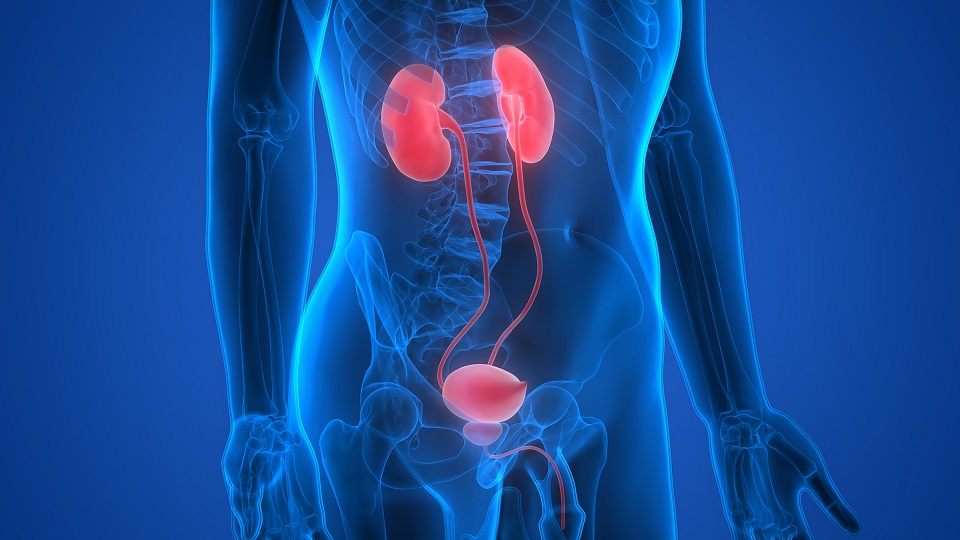Urology tourism: ‘What we need for kidney transplant in Sokoto’
Kidney transplant equipment, and Electricity Step Down Substation/Transformer of 300KVA, 11/0.415KV are among major requirements to complete the Institute of Urology and Nephrology project in Sokoto and commence kidney transplant. Already urologic research, training and services have commenced at the institute, the only Institute of Urology and Nephrology in Nigeria and West Africa by design, […]

3D Illustration of Human Body Organs (Kidneys)
Kidney transplant equipment, and Electricity Step Down Substation/Transformer of 300KVA, 11/0.415KV are among major requirements to complete the Institute of Urology and Nephrology project in Sokoto and commence kidney transplant.
Already urologic research, training and services have commenced at the institute, the only Institute of Urology and Nephrology in Nigeria and West Africa by design, its Director, Professor Ismaila Mungadi, disclosed.
Mungadi was commenting shortly after he lead a team of medical experts to perform surgery which was broadcast to a gathering that included the Executive Secretary, Tertiary Education Trust Fund (TETfund), Prof. Suleiman Bogoro; Vice-Chancellor Usmanu Danfodiyo University, Sokoto and Chief Medical Director Usmanu Danfodiyo University Hospital, Sokoto UDUTH, Dr Anas Sabir and a host of others.
It was Bipolar Transurethral Resection of the Prostate (TURP), a surgery for enlarged prostate, with no incision needed.
Mungadi highlighted what was required for the commencement of kidney transplant to include laparoscopic and open surgery equipment for kidney donation and implantation, preoperative dialysis machines, tissue typing, and toxicology apparatus.
Other major requirements, he said, include a high dependency hall for recovery of both kidney recipients and donors, and additional equipment for urologic surgery.
The Professor of Surgery/Consultant Urologist UDUS/UDUTH, said the institute, which was established by the university, through TETfund grants, has made some progress.
He noted the initial equipment that enabled training and research in urologic diseases, equipment for laparoscopic surgery, laser machine for kidney stone surgery, C-arm imaging and Doppler Ultrasound machines for intraoperative image guidance, modern anaesthetic, monitoring and intensive care machines, as well as Image transmission and teaching equipment.
Provision of the outstanding major requirements, he stressed, would empower the institute in seamless continuation of services and kidney transplant.
It would also enable the institute to continue the training of medical students, nursing students and Urology/Nephrology/Urogynaecology residents, and start training in Urology nursing, Nephrology nursing and Dialysis technicians, the surgeon added.
“Due to these services, the institute will be a repository for research materials and subjects, potentially curb urology tourism (including training) out of this region and attract clients from Nigeria and across West-Africa.”
On the institute’s strength, he noted collaboration between the university and teaching hospital and trained personnel, highlighting Urologists, Nephrologist, Vascular Surgeon, Histo-Pathologist Immunologist, Chemical Pathologist, Microbiologist, Perioperative Nurses and Dialysis technicians.
The director also noted the training of nuclear physician for Radio-nuclear renal scan.
He mentioned a Memorandum of Understanding with the University of Pondicherry & Madras Medical Mission, Chennai India on kidney transplant.
“This project has already started yielding results. Our next stop, among others, is kidney transplant and training on all aspects of it,” he stated.
Professor Mungadi was optimistic that with relevant research and training, standard and improved care would follow as the products.
He expressed their commitment towards ensuring the promotion of research, invention, manpower development and state of the art treatment of common urologic, urogynaecologic and kidney disorders.
In his remarks, the TETfund Executive Secretary, Prof. Bogoro said: “It is a great honour to witness what I will call state of the art surgery.”
He lauded the university saying “UDUS has with a sense of responsibility applied our funds very well.”
“Today at UDUS, I saw equipment that are all functional and operational. I am impressed.
The executive secretary harped on research to deepen effectiveness and assured of TETfund’s support.
The Vice-Chancellor, Prof. Lawal Bilbis, lauded TETfund’s efforts in Nigerian universities and highlighted some of the areas requiring intervention at UDUS to include Senate building, among others.
